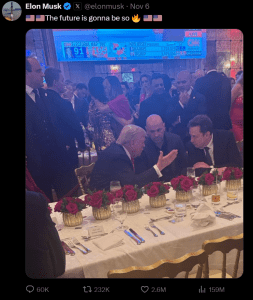Elon Musk’s trajectory is the stuff of business legend—a path marked by groundbreaking innovations, calculated risks, and a refusal to play by conventional rules. Musk doesn’t just build companies; he creates movements that redefine industries. From PayPal’s rise to Twitter’s transformation into X, his career offers a masterclass in bold leadership, strategic reinvention, and enduring resilience.
Here’s a closer look at key moments in Musk’s career, unpacking what makes his strategies work and what lessons businesses can take away from his relentless drive.
PayPal: Mastering Scale Through Simplicity
Musk’s journey began in the dot-com boom with X.com, an online payment platform that later merged with Confinity to become PayPal. Unlike its competitors at the time, Musk’s focus wasn’t on complexity but on simplicity—enabling fast, secure digital payments in an era when e-commerce was still nascent.
PayPal’s user-friendly model quickly gained traction, and its viral “refer-a-friend” campaign added a layer of exponential growth, reaching over 1 million users in just a few months. This wasn’t accidental—it was Musk understanding that scalability required both simplicity in the product and boldness in marketing strategies.
Takeaway: Make onboarding and usability frictionless. Whether you’re a startup or a large enterprise, scaling requires a product that doesn’t just meet needs but does so intuitively.

Elon Musk enters Twitter HQ carrying a sink, symbolizing the sweeping changes he brought to the platform after acquiring it, now rebranded as X. (Source X)
Tesla: From Luxury Niche to Market Domination
Tesla wasn’t built overnight, and Musk knew this. In Tesla’s early days, instead of going head-to-head with mass-market car manufacturers, Musk targeted the luxury niche with the Roadster—a high-performance EV that caught the attention of affluent, eco-conscious buyers (source).
This initial strategy wasn’t just about revenue—it was about creating desirability. With Tesla’s early success, Musk reinvested in scaling production and eventually introduced the more affordable Model S and Model 3, cementing Tesla’s position as the leader in the EV market. By 2023, Tesla held 65% of the U.S. EV market share.
Takeaway: Start small, but think big. Whether entering a saturated market or a new industry, targeting a specific niche can provide the funding and brand credibility needed to scale.
SpaceX: Redefining the Impossible
When Musk founded SpaceX in 2002, his goal wasn’t just to make space exploration feasible—it was to make it sustainable. By developing reusable rocket technology, SpaceX slashed the cost of launches from $18,500 per kilogram to $2,720 per kilogram, revolutionizing the aerospace industry.
SpaceX faced near-collapse in 2008 when three consecutive rocket launches failed. Musk, risking his last reserves of cash, bet everything on a fourth launch. That launch succeeded, securing NASA contracts that propelled SpaceX into profitability.
Takeaway: Risk is inevitable in innovation. Businesses must be prepared for failure but also ready to pivot quickly and decisively.
X: Reinventing Social Media and Beyond
When Musk acquired Twitter for $44 billion in 2022, the move raised eyebrows. Critics doubted the wisdom of the deal, especially as Musk slashed Twitter’s staff by over 70%. Yet Musk’s bold actions reflected a deeper vision—rebranding Twitter into X, a platform poised to become an “everything app” combining communication, payments, and more.
Under Musk’s leadership, daily active users grew from 229 million to over 259 million by late 2023. This wasn’t just a revival—it was a reinvention, with Musk positioning X as a cornerstone of digital life.
Takeaway: Reinvention isn’t just about survival—it’s about staying ahead. Businesses must be willing to pivot boldly and adopt ecosystem thinking, aligning all products and services into a cohesive, scalable vision.

Source: X
The Political Gambit: Musk’s Role in Trump’s Victory and Beyond
Elon Musk’s involvement in Donald Trump’s unprecedented political resurgence demonstrates his growing influence beyond the tech world. By leveraging X (formerly Twitter) as a platform for unfiltered political dialogue, Musk played a pivotal role in reshaping the digital battlefield of public opinion. Analysts credit Musk’s bold moves, including amplifying controversial debates and fostering grassroots mobilization, with significantly boosting Trump’s visibility and engagement during the 2024 campaign.
Simultaneously, Musk’s embrace of Dogecoin (DOGE) as a digital currency of choice adds another layer to his audacious playbook. With plans to integrate DOGE payments into X and hinting at similar ambitions for transforming government financial systems, Musk has set his sights on revolutionizing how institutions operate. As he aims to replicate X’s radical reinvention in the U.S. government, critics and supporters alike are watching closely, wondering if Musk’s disruptive strategies could redefine governance itself.
The Musk Approach to Risk and Reinvention
What sets Musk apart isn’t just his willingness to take risks—it’s his ability to leverage those risks into transformative outcomes. Each venture—whether PayPal, Tesla, SpaceX, X or the 2024 elections—shares a common thread: Musk doesn’t just chase market trends; he anticipates them.
Businesses of all sizes can learn from Musk’s playbook:
Know When to Niche: Like Tesla’s Roadster strategy, find a high-value niche to dominate before scaling.
Reinvest in Scalability: Allocate early wins into building infrastructure for future growth.
Operate Lean, Think Big: Efficiency in operations isn’t just cost-cutting—it’s a foundation for reinvention.

